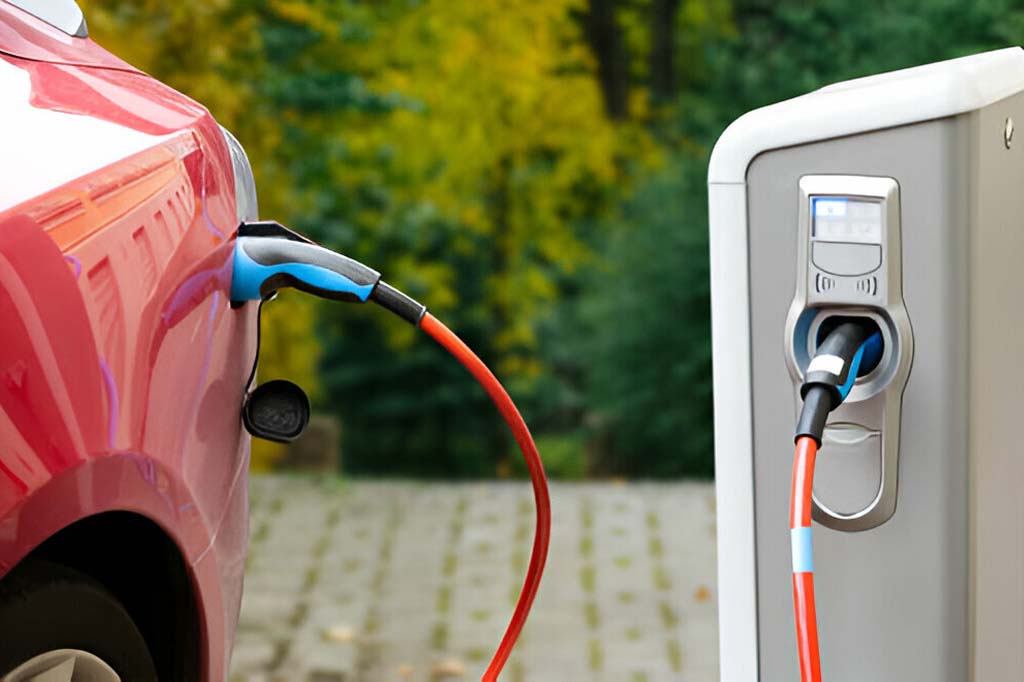EV Charger
EV Charger Installation in Sydney: A Comprehensive Guide
As Sydney’s urban environment transforms, there is a clear movement towards sustainable living practices. Electric vehicles (EVs) are increasingly prevalent on the city’s streets, mirroring a worldwide shift towards eco-friendly transportation. However, to fully realize the environmental advantages of EVs, it is crucial to examine the origins of the electricity that powers them. Integrating EV chargers in residential areas presents an effective solution, combining the benefits of energy efficiency with contemporary transportation needs.

Understanding EV Charging:
Fundamentally, EV charging involves supplying electricity to charge electric vehicles. In many households, EV chargers are installed to ensure convenient and efficient charging. Electricity may come from the grid or be generated on-site, such as through solar panels, offering flexibility based on user preferences. An inverter is typically used to convert the electricity into a form suitable for household use and EV charging. By using renewable sources like solar, homeowners can reduce their dependence on the grid and charge their vehicles using clean, sustainable energy.

Benefits of EV Chargers :
Cost Savings:
A primary benefit is the decrease in electricity and fuel costs. By generating your own energy or taking advantage of off-peak rates, you can reduce the financial burden of rising electricity prices and eliminate fuel costs associated with conventional vehicles
Environmental Impact:
Charging your EV with renewable energy significantly reduces your carbon footprint. This ensures that your transportation remains environmentally friendly, minimizing greenhouse gas emissions.
Energy Independence:
Having your own charging system at home grants a degree of autonomy from the public grid. This independence not only provides potential cost savings but also enhances energy security, particularly during peak demand periods or power outages.
Types of EV Charging Systems:
These systems are integrated with the public electricity grid, allowing any surplus energy generated to be returned to the grid. Homeowners may receive credits or payments for this excess energy. However, it is important to note that these systems generally cease operation during power outages for safety considerations.
Grid-Tied Systems:
These systems are connected to the public electricity grid. Any surplus energy generated (for example, from solar panels) can be returned to the grid. Homeowners may receive credits or payments for this excess energy. However, these systems usually shut down during power outages for safety reasons.
Off-Grid Systems:
These operate independently of the public grid and typically include renewable energy generation and battery storage. While they offer full energy independence, they require a significant investment in storage to ensure reliability.
Hybrid Systems:
Combining features of both grid-tied and off-grid setups, hybrid systems include battery storage and grid connectivity. This allows energy storage for use during cloudy days or at night while maintaining access to grid power when needed.
Components of a Residential Solar EV Charging Setup Solar Panels:
The essential elements that capture solar energy and convert it into electricity. The efficiency and quantity of these panels directly influence the total energy output.
Solar Panels (Optional):
Panels can be installed to capture solar energy and reduce grid dependency. Though optional, they enhance sustainability and long-term savings.
Inverters:
These devices convert direct current (DC) electricity—whether from solar panels or batteries—into alternating current (AC) for household and EV use.
EV Chargers:
These specialized devices supply electricity to your EV’s battery. They come in multiple levels, with Level 2 chargers being the most popular for residential use due to their faster charging speed and cost-effectiveness.
Energy Storage (Batteries):
Although not required, batteries allow you to store excess energy for use during night or low-sunlight periods. This adds flexibility and boosts the overall system efficiency.
Choosing the Right EV Charger for Your Home
When selecting an EV charger, consider the following:
Charging Specifications: Ensure the charger’s power output matches your EV’s charging capacity. Some vehicles support faster charging than others.
Compatibility: If you already have a solar or battery system installed, check that the charger integrates well with your current setup.
Advanced Features: Modern chargers often come with smart capabilities such as scheduling, remote access, and energy monitoring, all of which enhance convenience and efficiency.
FAQ:
An EV charger is a device that supplies electricity to an electric vehicle’s battery. It can be installed at home for convenient, cost-effective charging.
Yes, you can. Many Sydney homeowners install Level 2 EV chargers, which offer faster charging and are ideal for residential use.
No, solar panels are optional. While they enhance sustainability and reduce electricity bills, you can charge your EV using grid electricity alone.
The costs can vary significantly, generally falling between $1,500 and $5,000, influenced by the type of charger and the size of the solar system.
Yes, homeowners in Sydney can take advantage of rebates, tax incentives, and feed-in tariffs.
With a Level 2 charger, most EVs can be fully charged within 4 to 8 hours, depending on the vehicle’s battery size and charger output.
Certainly! It lowers expenses, promotes sustainability, and ensures long-term energy independence.
Home EV chargers offer convenience, reduce fuel costs, support renewable energy use, and increase energy independence.
Yes, EV charger installation must be done by a certified electrician to ensure compliance with Australian standards and safety regulations.